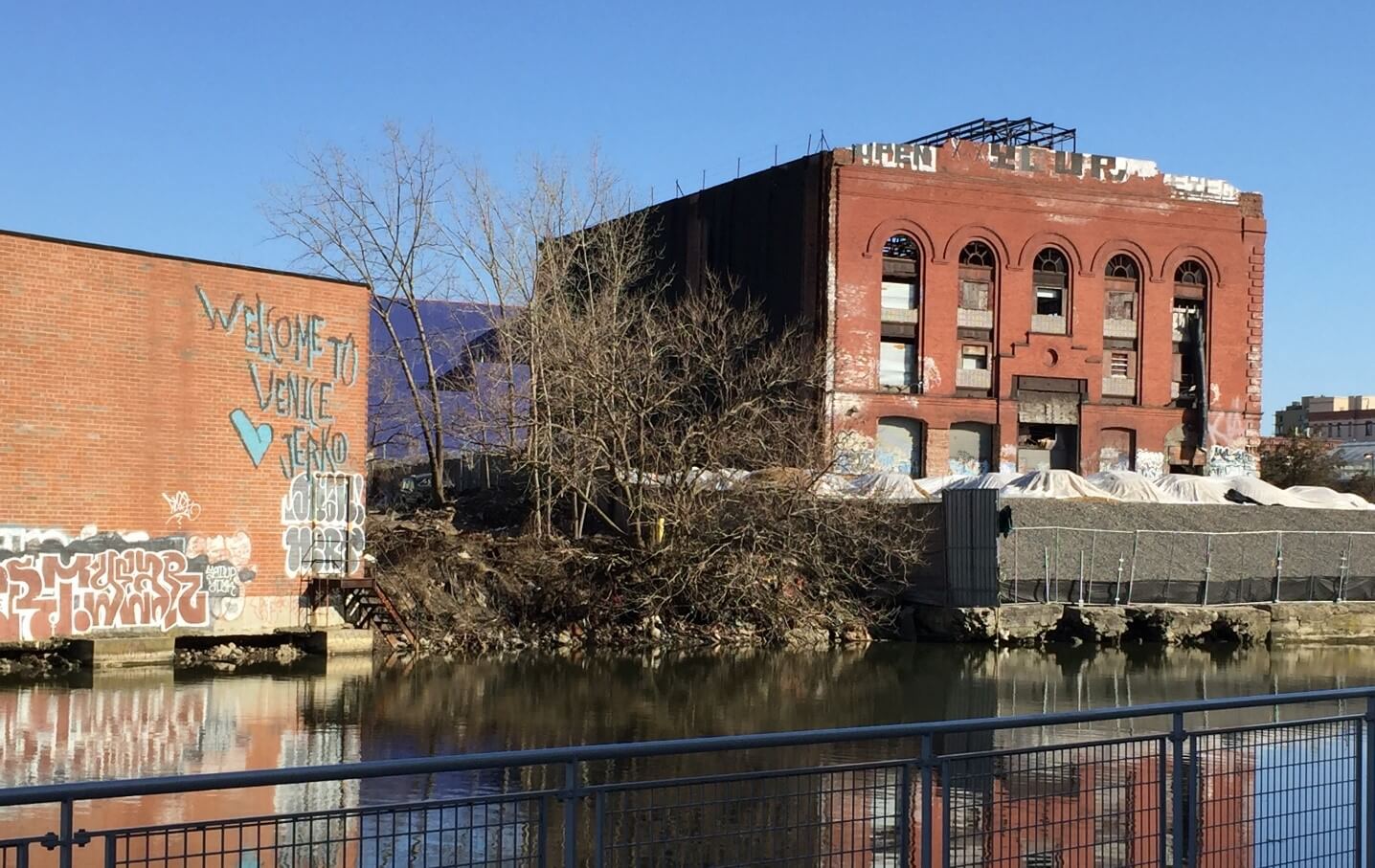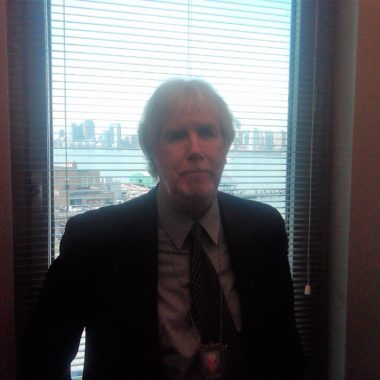My pal Vinny is writing up a storm about his early years, most of them spent at the foot of the rickety Carroll Street Bridge amidst a tight-knit community of proud Italian-American strivers. Some thrived, many didn’t. Mezza Mezza. More on that later.
I first met Vinny in 1961 when we were both freshmen trying to avoid getting whacked by the Brothers at St. Augustine High School on 6th Avenue and the Puerto Rican gangs on 5th Avenue. He went on to teach English at Automotive High School, the same place his father dropped out of to work the docks. But when Vinny turned 30, he found himself at the Columbia School of Journalism, winning a fellowship covering race relations in the U.K., launching a journalism career that would span more than 35 years. He was the lead reporter for Newsweek’s coverage of the AIDS epidemic, the explosion of the space shuttle Challenger, and the Atlanta child murders, contributing other feature stories to Esquire, Rolling Stone, and similar top-line rags. Vinny authored many non-fiction books but my favorites are the ones he poured his soul into. For instance, while recovering from cancer, he curated forty personal essays by the world’s top oncologists while weighing in on his own battle to produce The Big Casino/America’s Best Cancer Doctors Share Their Most Powerful Stories (2014). And twenty-five years before the January 6th insurrection, he penned Dragons of God, a first-person account of the rise of neo-Nazis and other domestic scumbag groups that led to the devastating attack on the federal building in Oklahoma City.
An Atlanta resident for many years, Vinny recently moved to ghost-infested Savannah. Which possibly explains his escalating ability to so lovingly channel the long-departed spirits of Carroll Street, a stone’s throw from the Gowanus Canal to the west and Our Lady of Peace to the east. Vinny let me sample some of his output lately and if you’re new to the area, his stories will acquaint you with the ghosts who undoubtedly still haunt these streets.
For instance, in Vinny’s world you’ll meet another St. Augustine refugee, mixed-breed Ray Sharkey (half-Italian, half-Irish) who escaped Gowanus for Hollywood fame only to die of AIDS: In a neighborhood where everyone—from Angioletti, the singsong fruit peddler, to the gamblers on the corner—shouted like performers in some sidewalk opera, Ray was a loudmouth.
The local operator: On Carroll Street, Fat Rosie, the only female bookie in the neighborhood, stumbled when Emo, her boyfriend, sold drugs to the wrong man’s son, and was hung from a meat hook.
Vinny’s aunt: Lucy lived in a ground-floor apartment two doors from Monte’s “Venetian” Room where the food was Neapolitan and “Venetian” an ironic nod to the pestilent canal down the street. “Eddie Pole” lived across the backyard with his sons, “Anthony Penguin” and “Johnny Bananas,” and daughters, Ginger and Cookie. Friday nights, the entire street cheered as the they cursed and pummeled Eddie, staggering home after blowing another paycheck in the Old Brigadier bar.
And his family: Morning sunlight streams into the dim, second floor bedroom, my younger brother’s refuge for the last18 months. The same room three brothers shared as teens, Joseph and I giggling as we raid Thomas’s stylish jeans, sweaters, and jackets while he sleeps; the room where we dreamed our separate dreams. I’d be a writer; Joe, the gifted athlete, a quarterback; Thomas, blessed with supernal beauty and aching sensitivity, would become a famous actor. In Gowanus, isolated on the banks of a poisoned canal in the shadow of lower Manhattan’s skyscrapers, our dreams do not carry the tragic weight of hubris, they’re laughable…
And mother Gloria’s care for that younger brother: I have a three-year-old daughter in Atlanta and Thomas has a mysterious, infectious disease that in 1985 is 100 percent fatal. He lies there immobile, left eye swollen shut, blond hair lank and burned ash grey by toxic medications, his handsome face disfigured by dozens of purple lesions—Kaposi’s Sarcoma, a rare and “indolent” skin cancer that in AIDS patients is invasive and hyper-aggressive; so aggressive that I swear new tumors appear on Thomas’s arms and legs overnight. Radiation has turned his swollen legs into leather, my hands ache from trying to massage his pain away. He’s refused any further treatment with alpha interferon (the side effects are so terrible it’s been compared to having the flu every day of your life) though it kept the raging cancer in check for months…Thomas has survived deadly pneumocystis pneumonia, only to be ravaged by “opportunistic” infections, some unheard of in humans. Things are at the point that I have a pistol, but I don’t have the courage…I’ll never have the courage. Gloria will not allow me to change his linens or help him use the bathroom…Seeing my mother helping her dying son is literally The Pieta come alive. An ambulance is enroute to take Thomas to Mother Cabrini Hospice on East 19th Street in the Manhattan he so loves. “Those bitches!” Gloria says in the hoarse whisper that is now her only voice. “They’re standing out there just waiting.” It’s too much. I jerk the hallway door open and run down the stairs, half-tumble onto Carroll Street. I’m going to kill them—Phyllis Hubela, Millie Pepe, Fat Rosie, some other neighborhood women I can’t recall—then I notice they’re all crying. For Thomas. For Gloria. For me. Someone hugs me and now I’m sobbing. The ambulance pulls up.
Coppola’s style is unique. Propulsive but imbued with an empathy that recalls the best of Hamill and Breslin in chronicling the strivers, the failures, the left-behinds and the unforgettable characters who inhabit the struggling corners of our city – equal parts hilarious, compassionate, level-headed and heart-wrenching. He resurrects the heroes, the hoods, the fallen, and the risen, all quintessentially Brooklyn when Brooklyn wasn’t cool…but tough, very tough.
While we wait for Vinny’s epic compilation to hit Barnes & Noble, treat yourself to some excellent old posts at Vinny’s blog. As for me, I’ll be sending some prayers Vinny’s way, hoping some recent health setbacks are only temporary. Tenere duro, vecchio mio.
My pictures from 2018 at foot of Carroll Street Bridge:











